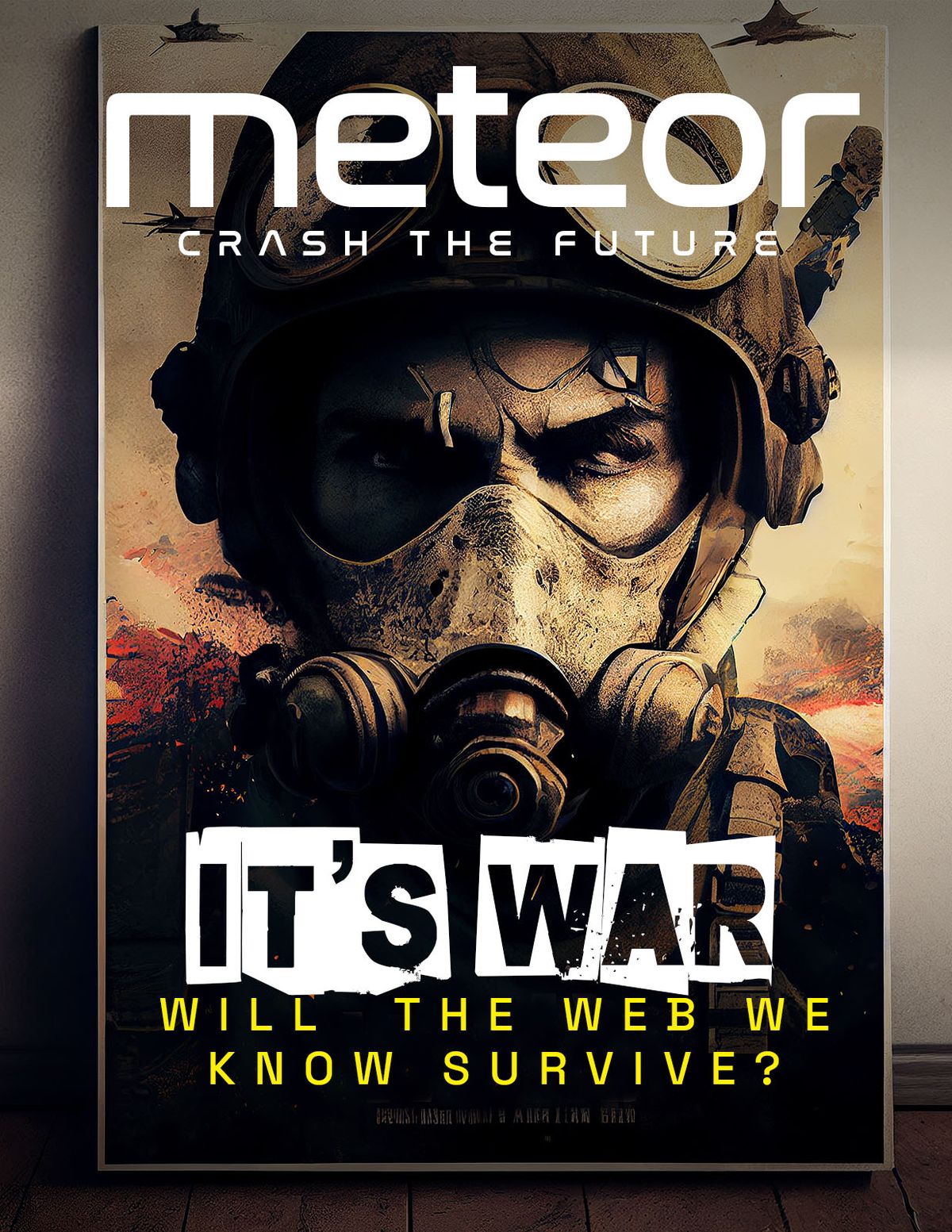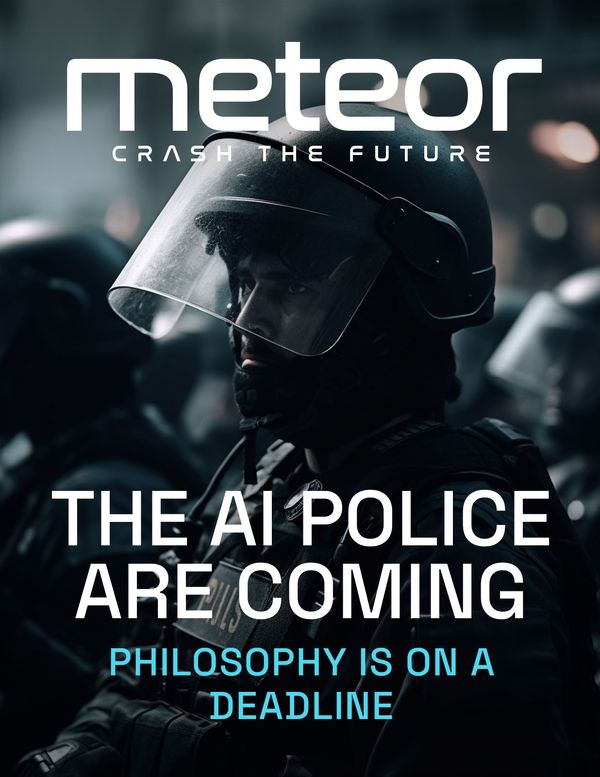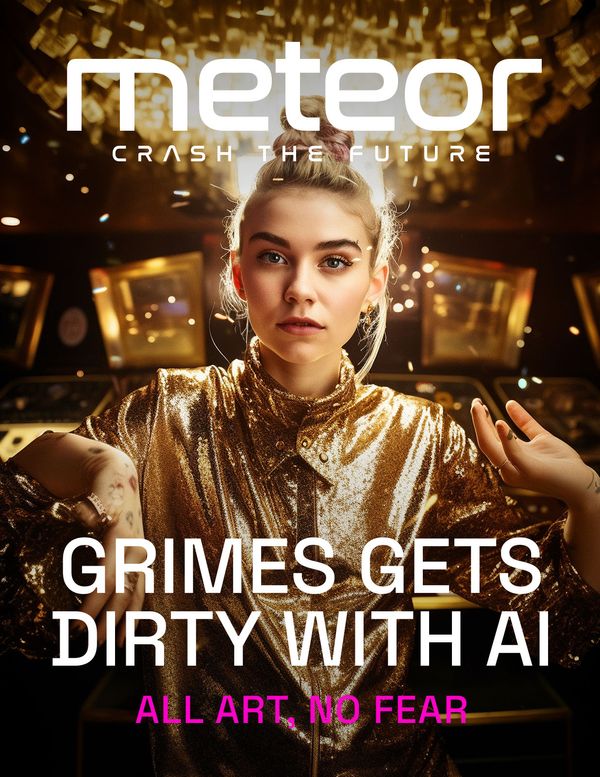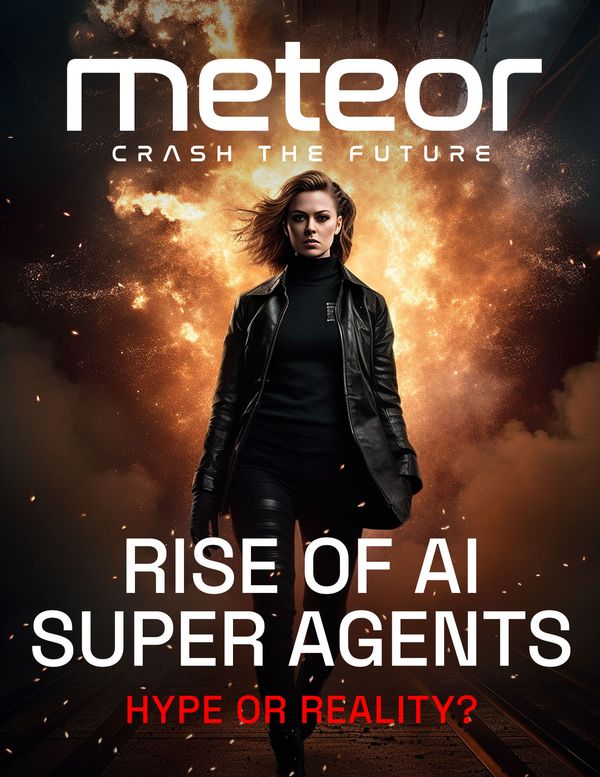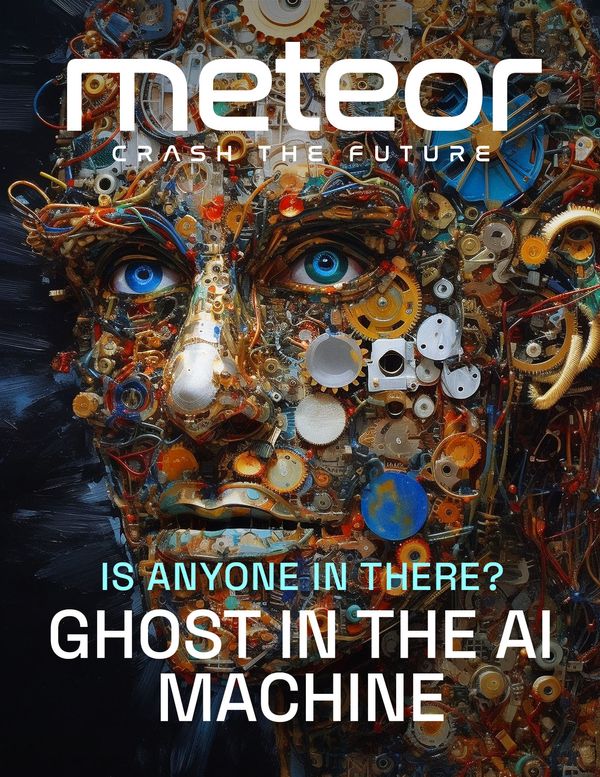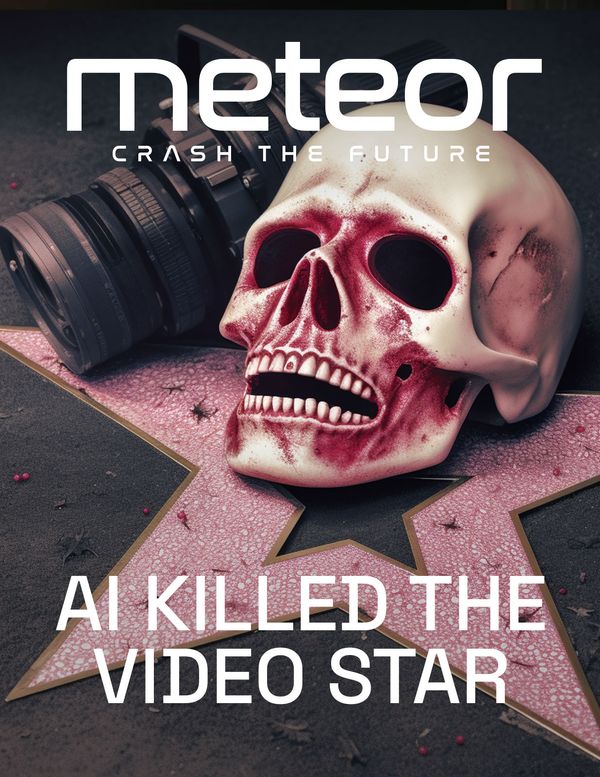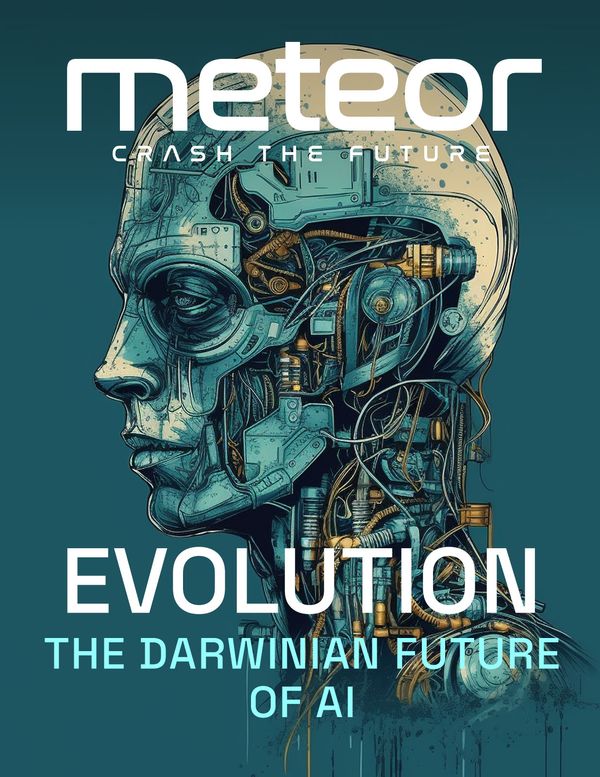Today in Meteor
- Create: Black Future Month Artist Spotlight: @vuLoN_
- Disrupt: Google and Microsoft are on a generative AI collision course
- Compile: Meta targets teen users to prop up its flailing Metaverse app
- Beyond: AI turns its attention to looking for exoplanets
Create
The new renaissance

Black Future Month Artist Spotlight: @vuLoN_
@vuLoN_ got into art as a kid, when he was just drawing all the time (that's the Twitter handle he prefers, not his real name). Sports took precedence until high school when he got into graffiti, which led to the Art Institute of Philadelphia and a career as graphic artist.
The move to digital came early and easily through exposure to Photoshop and Illustrator at school. He says he first got started in crypto art in 2019, putting composites on places like Known Origin and MakersPlace. Nowadays he posts most of his best work on SuperRare and conceptual work, where he steps outside his comfort zone, he saves for Foundation.
He describes his two main styles as SlopArt and Suss Bedlam, "SlopArt being works of my outlook on society (memories, opinions, culture, etc). Suss Bedlam being works of controlled chaos. Also there's Grass Touchers which are digital renditions of original physical work," he explained.

He uses a local version of Stability Diffusion and says his main goal is experimentation, just trying things out and letting the AI lead. He also likes to play around with sound and music on the noise/industrial rap end of the spectrum.
"I enjoy it," he says of his music and art. "If I wasn't doing this I would be doing - I'm a graphic designer making flyers. It was an easy transition, I get to do what I want to do, I don't need to worry about the constraints of making something for other people. And there are people out there that like it enough."
Disrupt
Big ideas that change the world

Google and Microsoft are on a collision course over generative AI, and the Web itself could be at stake.
The Facts: Google has launched its own consumer AI chatbot, Bard, and invested $300 million in Anthropic, a startup founded by former OpenAI researchers who have created yet another consumer AI chatbot, Claude.
In other words they're finally trying to catch Microsoft, which has raced ahead with consumer AI chatbot integrations in pretty much all of its software products, including a new version of its laggard Bing search engine.

Why It Matters: The capabilities of consumer AI technologies have astounded people and unleashed a wave of investment and tools, but turning them into profitable businesses will be a bruising battle, and civilians will likely bear some unexpected fallout.
AI has completely reset the game. Forget querying a Web index in a search bar to get a list of links, soon everyone will be querying an AI to get instant answers to questions typed into a chat interface or see unprompted suggestions pop up from an app buddy. At stake: Google's crown jewel of search, and everyone who relies on it, among other things. Like the Web.
It's a big deal.
What Was: When I first visited the World Wide Web, in 1993 on the just released Mosaic browser, there wasn't much there. But the Library of Congress was, so I clicked a link and started reading random U.S. government documents. And I'll be honest, that sounds really boring, but my mind was blown. No more trips to the library, a simple Web search could bring me the knowledge of centuries, with a click.
Since then I've probably read at least 200,000 articles on the Web from my office chair, and since COVID, the comfort of my couch. It really is mind blowing to think the corpus of human intellectual work is there in a global network at my fingertips. What could top that?
Well there are now multiple AIs that have scanned billions of Web articles, digested them and processed them and have them ready at their artificial synapses to reconstitute at will in seconds, with a prompt.
The era of the Web, as astonishing and enriching and enraging as it has been, may now be a thing of the past. AI has learned it all, and can deliver it seconds, no browsing or searching required.
The Internet archive has been synthesized into a button activated app.
'What's Next: To see where this is going, look at popular questions and answers site Quora. It hosts millions of answers written by its users, ranked for usefulness and accuracy. It's kind of a like a mini-Web.
This week it just launched a completely new product called Poe, an AI that is trained on the best answers in this extensive library. Now, instead of taking people to a user generated Web page that seems relevant to a question, Poe will just give the answer. Why write new answers if no one will see them?

This dynamic is going to go everywhere fast, and will have profound consequences for the Web, and the writers and publishers who rely on search referral traffic for survival. It's a good bet SEO itself, the science of gaming search algorithms, will be dominated by AI written link farms that interact with bots and nothing else.
Already, 90 percent of time spent on mobile devices is in apps, leaving a paltry 10 percent for the Web. Desktop meanwhile has been steadily losing to mobile and they are now about even.
So what happens when URLs start disappearing from sight to all but the AIs that flipped through them to amass their proficiency?
The punishing economics of Web publishing will only get worse. Thousands of writers have already downgraded the Web to an afterthought and go straight to email, like this newsletter. Many more will disappear from public view behind paywalls, depleting the resources available to train new AIs with new information.
"These developments are happening so quickly … they call for such fundamental changes to how products should be built," Quora CEO Adam D'Angelo wrote announcing Poe on Twitter. In other words, stop building for the Web, build for AI.
Oh and a Baidu bot is coming too.
Yes, But: The popularity of ChatGPT has shocked the entire sector into a collective reflexive reaction. Money is pouring in to build on the AI tech behind it, and teams are being diverted to get products out to customers before rivals swoop in. It has all the feeling of a classical hype bubble, as we wrote yesterday, and could prove in the long run to be a distraction that delays other promising but overlooked areas.
Compile
Quick dopamine hits
Meta targets teen users to prop up its flailing Metaverse app
‘Horizon Worlds’ has struggled to attract adults over 18, so Meta is considering going after teens to fill the gap and save Mark Zuckerberg’s big bet, according to an internal memo.
Money Machine Go Brrrr-oke?
NFT owners are going to the crypto bank – for loans. A record 4,399 loans were on the books at an average of about 4 ETH in January collateralized against what are, shall we say, volatile assets. We've seen this before and it didn't end well.
Actually, AI is more like a pigeon brain
Psychologists find that pigeons learn by "brute force" repetition and trial and error, much like some forms of artificial intelligence.
Inscriptions reportedly now take up half of Bitcoin's blockspace
Just a few weeks after the Ordinals project launched a protocol to inscribe text, images and even video directly onto the original Blockchain, effectively giving birth to a new universe of Bitcoin NFTs, the ledger has already come to be dominated by what many see as little more than spam.
Is it possible to jailbreak ChatGPT?
A long-winded, convoluted prompt shared on Reddit appears to be able to manipulate ChatGPT into violating OpenAI's content policies by essentially asking it to play a character without such limitations. Results using the prompt are mixed, however.
Hublot and Artist Takashi Murakami team up
The Swiss watch maker and Japanese artist are launching a new luxury wristwear collection tied to NFTs. Murakami's Cryptokicks collab with Nike sold for over $100,000 each last year, during better times for NFTs.
Beyond
Web3 isn't eveything
AI turns its attention to looking for exoplanets
The universe is filled with data, and the cosmos might actually be easier for ML to parse than human language.
3D printed peptides could be the future of regenerative medicine
Researchers essentially printed cells that can grow into tissues to be used for repairing injuries and more.
Thanks for reading! Please take just 30 seconds to tell us what you love or hate about this issue.

